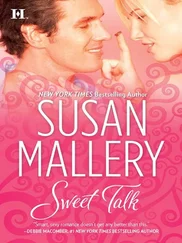MARSHA: I hope it’s a lady. I hate this person. If he were an animal, what animal would he be?
EMILY: Oh, very good — a groundhog.
MARSHA: I think I know who it is.
EMILY: Then guess; otherwise it’s no fun.
MARSHA: Clem Nye.
EMILY: Are you kidding? Clem’s not any groundhog.
MARSHA: Is it Nathan Fass?
EMILY: Nathan Fass it is.
22. MARSHA INTERRUPTS A DISCUSSION OF HERSELF
VINCENT: You know you’re unbelievable? You’re a pathetic thing, Emily, and I’ll tell you why.
EMILY: I’m a pathetic thing and you’re drunk on vodka.
VINCENT: I’m not drunk. Let me tell you something.
EMILY: Enough of the preludes.
VINCENT: Preludes nothing — preludin, that’s what you need, because you’re very ill. Preludin is a very strong tranquilizer which my daddy took when he was in such pain.
EMILY: Preludin is a diet pill. Go ahead, tell me why I’m a pathetic person, it’s one of the greatest compliments I’ve ever been paid.
VINCENT: You’re a pathetic person because you cannot accept criticism and what’s even more pathetic is that you think it is criticism.
EMILY: Darling, I am the person of all time who accepts criticism. Do you think Marsha does, or you?
VINCENT: No, seriously, we were talking about Fitzgerald.
EMILY: Right — Fitzgerald says to Laurette Taylor: “My God, you beautiful egg, you beautiful egg, you beautiful, beautiful egg.” And Laurette Taylor turns to her husband and says, “Oh Hartley, I’ve just seen the doom of youth. Do you understand? The doom of youth itself, a walking doom.”
VINCENT: Now that’s gorgeous. And do you know what made that gorgeous which the other thing you read didn’t have? A beginning and an end.
EMILY: Oh you and your art, you and your related images, you and your no one thing stands by itself; you, you, you.
VINCENT: Marsha’s coming back. Let’s close the door and show them we’re alone.
EMILY: Can we analyze a little about her and Tim Cullen?
VINCENT: No, can we be honest about ourselves?
EMILY: I want to tell you a story about my sister.
VINCENT: All right, but make it short?
EMILY: My sister’s a lot like me on certain levels.
VINCENT: Aw, let’s talk about ourselves.
EMILY: This is very interesting. My sister said I’m having trouble with my older little boy, and I went to the school psychologist — my sister was telling me this story on the street.
VINCENT: Is it going to be long or short?
EMILY: Very short. She said you know we very often don’t listen to our children; we hear them and we give them answers, but we don’t really listen.
VINCENT: Um.
EMILY: And as my sister was telling me this story, I said what? Because I wasn’t listening to what she was saying.
VINCENT: Beautiful.
EMILY: I have a great deal of difficulty really listening to people.
VINCENT: Not with me.
EMILY: No, because I feel very secure with you and I also respect you, I know what your mind is.
VINCENT: You mean you don’t listen to other people because you feel insecure?
EMILY: No, I cut off. I’m very fantasy-ridden, you know, I have a fantastically active fantasy life. But my dreams are getting very realistic. The healthier I get, the more realistic my dreams become.
VINCENT: The more your life becomes a fantasy.
EMILY: Did you ever hear my Ingmar Bergman dream of my father?
VINCENT: Your Gertrude Berg dream? Yes, you just told it the other night. Besides, I don’t want another story; I want repartee.
EMILY: Should I read you one of my poems?
VINCENT: You know you’re crazy? I just said we want repartee, a thing going back and forth between two human beings, and you say do you want me to read a poem? What has that got to do with communication?
EMILY: Communication is that you’re a human being with crazy beautiful brown eyes and I’m looking at them.
VINCENT: Hazel in the sunlight, you told me last week on the beach.
EMILY: In the sunlight, in the light in the window, the key is in the sunlight.
VINCENT: You can only function when you’ve had a drink.
EMILY: Do you know what my father left me when he died? I’ve never told this to anyone but my analyst, what he left me in his will. He left me his undying love. That’s very scary, isn’t it?
VINCENT: It’s beautiful.
EMILY: That’s just what he had written in his will.
VINCENT: Only for you?
EMILY: No, for his children. “And to my children, my undying love.” It’s very sick, but it’s also very beautiful.
VINCENT: I don’t think it’s sick at all. And if you do, you’re crazy. It’s a beautiful, abstract thing, a very substantial, complex thought. And do you know something? It’s all that remains with you of him. If he had left you a hundred thousand dollars, you would have spent it like that girl did, Sick Joan. But he left you his undying love. It’s a fantastic thing, something you hold.
EMILY: Yes, darling, but undying love from a father who didn’t love you the right way when he was alive is very dangerous.
VINCENT: I’ll tell you something about a child’s reaction to his father’s or his mother’s love. As an adult, one looks back on the love of his parents as a child, and that child, I am sorry , does not know what love is about. That’s what’s wrong with most adults, they’re judging whether or not their parents have been good to them in terms of a child looking at his parents.
EMILY: No, in terms of an adult looking at his parents.
VINCENT: No, because what they’re analyzing are their childhood responses. It’s not facts they’re looking back on but feelings and remembrances.
EMILY: But that’s what’s true. Facts don’t mean anything, darling. On that level, facts mean very little.
VINCENT: You’re wrong. Truth is involved with facts, I’m sorry. If you say to me the sun is out now and I look and it’s cloudy, then it’s not sunny.
EMILY: Of course not.
VINCENT: So what I’m saying is how the parents were to the child is not necessarily, underline necessarily, as the memory of it is, because the memory was through the child’s eyes.
EMILY: Of course, of course. That’s what I said about chemical states and perceiving reality, about the nature of it being subjective. My problems do have a lot to do with my father. Now Marsha, you see — I’ve thought about this a great deal from what I know about psychoanalytic theory, I mean in the Chekhovian sense I know, I know how the present and the past are like life and art, how they’re so much a part of each other — Marsha’s relationship with her father, I would say, was permanently damaging.
VINCENT: You mean cannot be undone.
EMILY: Cannot be undone and will not be undone. At some point, at the crucial threshold of becoming a woman, her father rejected her, or, as you would say, she felt he rejected her, so she shut him out and shut herself off. So now, when she has someone like Tim Cullen, she can seduce him, get him into bed, and get the intimacy, but then she arranges for him to shut it off, just at that moment where nuance, identity and relationship start. Her relationships are all beginnings, they never get past that.
VINCENT: That’s where I disagree. I think they’re all conclusions, I don’t think there are any beginnings or growth.
EMILY: Well it’s exactly the same thing, just as what happened with her father was either a conclusion or a beginning, however you want to interpret it.
VINCENT: No, no, with her father it was a conclusion because there had been a beginning — that’s why it was so painful and there was the shutting off. So what she does now is begin at the conclusion, where the father left off, the point of intimate love relationship and deep intense feelings. You know I’m saying something very profound.
Читать дальше












